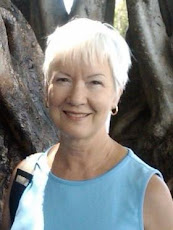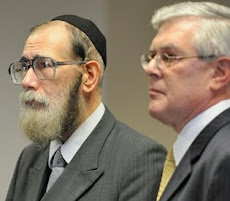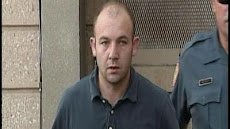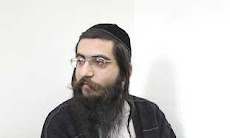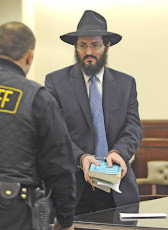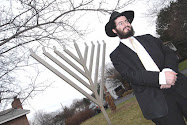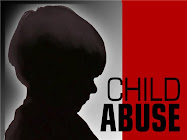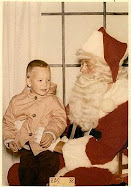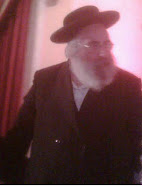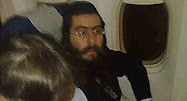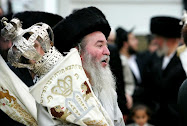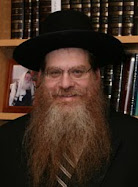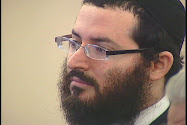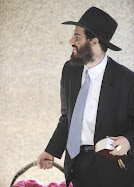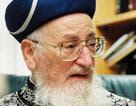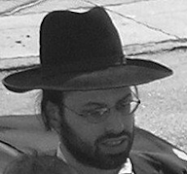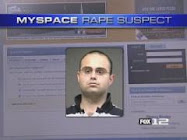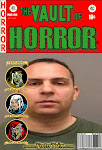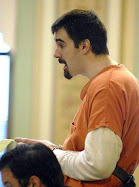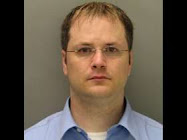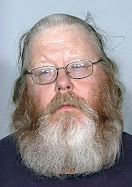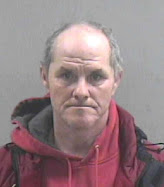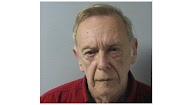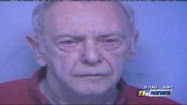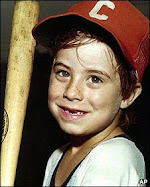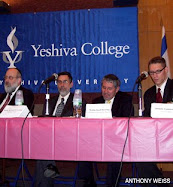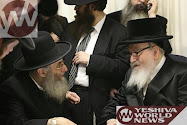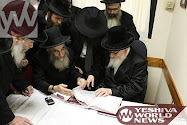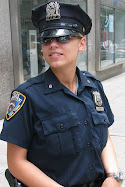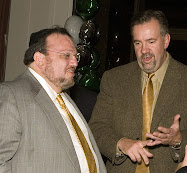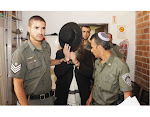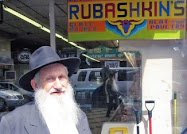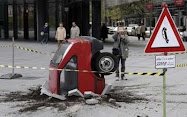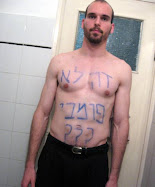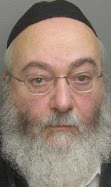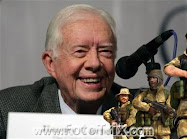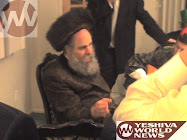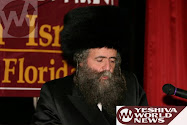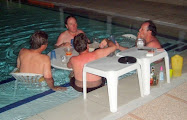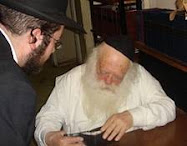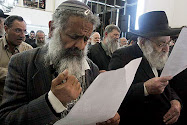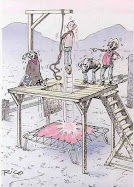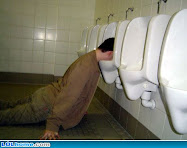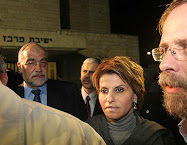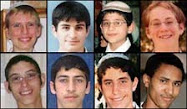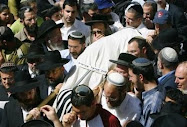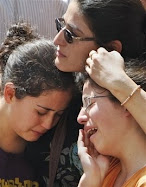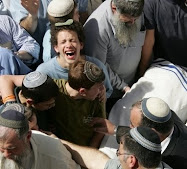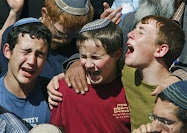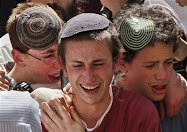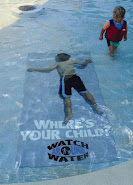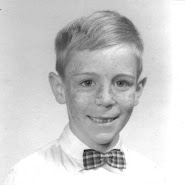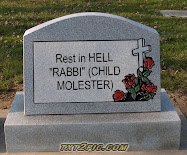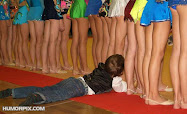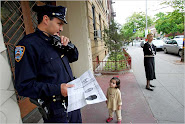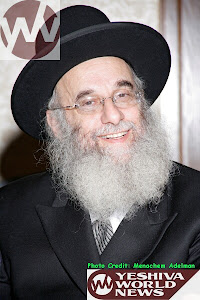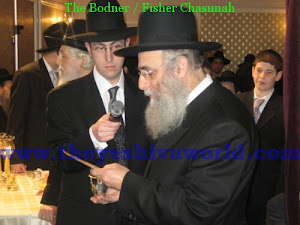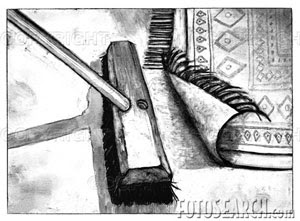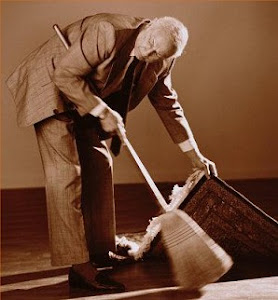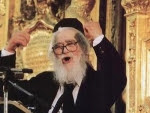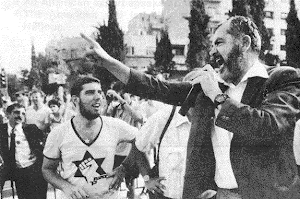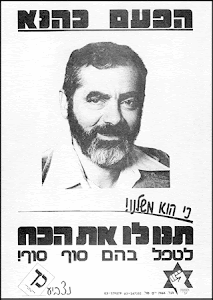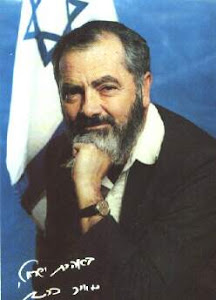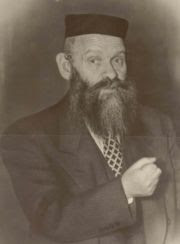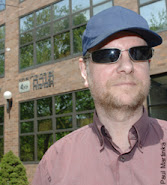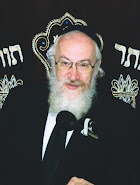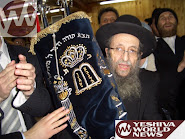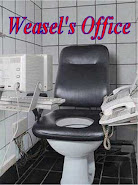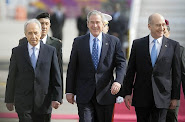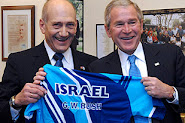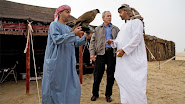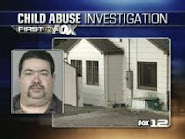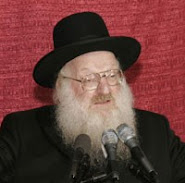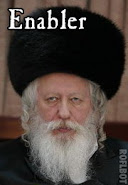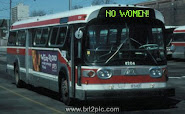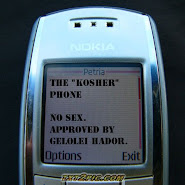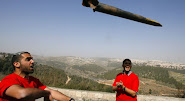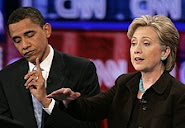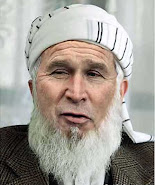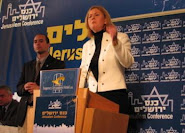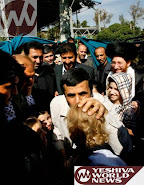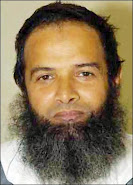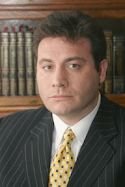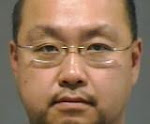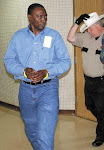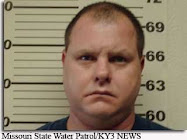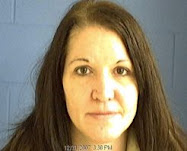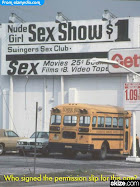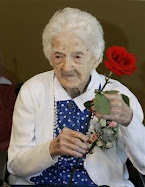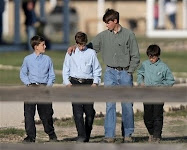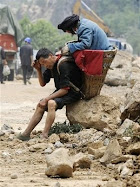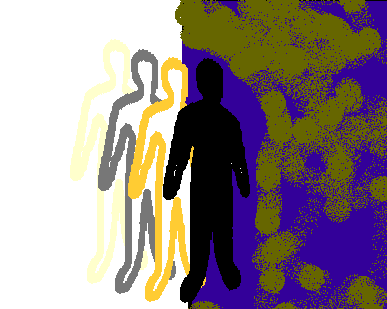Tuesday, June 12, 2012
Tales of Chelm - The Word Of An Elder Is Respected Over The Word Of A Child
http://www.cbsnews.com/8301-501363_162-57450886/orthodox-nyc-counselor-on-trial-in-sex-abuse-case/
Orthodox NYC counselor on trial in sex abuse case
NEW YORK — The abuse went on for nearly three years before the schoolgirl told anyone that her spiritual adviser was molesting her while he was supposed to be mentoring her about her religion, authorities said.
“They imagine they're the wave of the future, but it's only sewage flowing downhill”
Weberman attends fundraiser event for himself in May
But in Brooklyn's ultra-orthodox Jewish community, 53-year-old Nechemya Weberman has been embraced and defended as wrongly accused. The girl has been called a slut and a troublemaker, her family threatened and spat at on the street.
The rallying around Weberman, who goes on trial this month, and ostracizing of his accuser and her family reflects long-held beliefs in this insular community that problems should be dealt with from within and that elders have far more authority than the young. It also brought to light allegations that the district attorney was too cozy with powerful rabbis, a charge he vehemently denies.
"There are other people that claim misconduct and they can't come out because they're going to be re-victimized and ostracized by the community," said Judy Genut, a friend of the accuser's family who counsels troubled girls.
Brooklyn is home to about 250,000 ultra-orthodox Jews, the largest community outside of Israel. Step onto a Williamsburg street and tall guys in skinny jeans and tattoos are mingling with a flush of men in dark coats and hats carrying prayer books and speaking Yiddish. The Hasidic Jews appear to outsiders as though they come from another time; embracing centuries-old traditions, they wear black clothes, tall hats, long beards and earlocks. Women wear long skirts and cover their heads after they marry.
They have their own ambulances and schools, called yeshivas, their own civilian police and rabbinical courts. Members are encouraged to first speak to a rabbi before going to secular authorities — and as a result, cases rarely make it to outside law enforcement.
The topic has been studied and reported in the Jewish media for years and has recently made headlines in New York papers.
"They think that anyone who turns over anyone to the outside authorities is committing a transgression to the community at large," said Samuel Heilman, a professor of Jewish studies at Queens College.
The girl, now 17, was sent to Weberman at age 12 because she'd been asking theological questions and he had a reputation for helping people back on the spiritual path. He often counseled people, though he had no formal training. But during sessions, authorities say, he forced the girl to perform sex acts.
The girl started dressing immodestly, was deemed a troublemaker and removed from her school — one Weberman was affiliated with — and sent to another, family friends said. The allegations surfaced in 2011 when she told a guidance counselor there she'd been molested.
The Associated Press typically doesn't identify people who say they are the victims of sexual assault.
Weberman has pleaded not guilty, and articles in Hasidic newspapers have proclaimed his innocence and begged the community for support. More than 1,000 men showed up for a fundraiser aiming to raise $500,000 for his legal fees and, if he's convicted and jailed, money for his family.
"It's very hard for the town to believe the things that he's being accused of because he has a reputation of doing good and being good," Genut said.
George Farkas, Weberman's lawyer, said his client isn't guilty but is damned regardless because the allegations will taint his reputation.
The family has said they would've preferred to handle the allegations within the community. But when accusations are managed from the inside, victims are rarely believed and abusers aren't punished — in part because the word of an elder is respected over the word of a child, victims and advocates say.
Joel Engelman said he tried to work with yeshiva officials, finally confronting them at age 22 about a rabbi who abused him as a child. Engelman was given a lie detector test and encouraged to keep quiet about the allegations, and the rabbi was temporarily removed — long enough for Engelman to turn 23, making him too old under state law to file a complaint.
"It's that they don't want to believe that the rabbis that they've been raised to respect could be so cruel and could be so criminal," said Engelman, now 26.
His mother, Pearl, herself an activist, said the community is overwhelmingly good and believes people must be educated about the crime to start standing up for the victims.
"I'm not an anarchist, I'm not a rebel," said the 64-year-old mother of seven. "I love this community, and I want to change it for the better and make it safer for children."
Outside law enforcement has also had a difficult time. Before 2009, only a handful of sex abuse cases were reported within the ultra-orthodox community. Then, District Attorney Charles Hynes created a program called Kol Tzedek (Voice of Justice) aimed at helping more victims come forward about abuse, an underreported crime everywhere.
Part of the deal, along with a designated hotline and counseling, is that prosecutors don't actively publicize the names of accused abusers. The cases are still tried in open court, where the names are public.
Before Kol Tzedek, Hynes said, he struggled to mount a successful prosecution. "As soon as we would give the name of a defendant ... (rabbis and others) would engage this community in a relentless search for the victims," he said. "And they're very, very good at identifying the victims. And then the victims would be intimidated and threatened, and the case would fall apart."
Since then, 100 of the total 5,389 cases in the borough have come from the ultra-orthodox community, the district attorney's office said. Hynes also started a taskforce to combat intimidation attempts — and has said rabbis have a duty to come forward if they have been told of abuse.
But victims' rights advocates say Hynes has purposefully ignored some cases and hasn't pushed as strongly for full prosecutions of others — bowing to powerful rabbis in exchange for political support, a charge he strongly denies.
"He doesn't take care of victims," said Nuchem Rosenberg, a rabbi who says he was ostracized for speaking out about abuse. "He takes care of those in power, so they can all keep power."
Genut said the accuser is ready to testify. Her family, though, is looking for a higher judgment than criminal court.
"They believe that God's going to take revenge on him," she said. "They're suffering a lot and they say one nice day God's going to show us that he did stick up for us."
Orthodox NYC counselor on trial in sex abuse case
NEW YORK — The abuse went on for nearly three years before the schoolgirl told anyone that her spiritual adviser was molesting her while he was supposed to be mentoring her about her religion, authorities said.
“They imagine they're the wave of the future, but it's only sewage flowing downhill”
Weberman attends fundraiser event for himself in May
But in Brooklyn's ultra-orthodox Jewish community, 53-year-old Nechemya Weberman has been embraced and defended as wrongly accused. The girl has been called a slut and a troublemaker, her family threatened and spat at on the street.
The rallying around Weberman, who goes on trial this month, and ostracizing of his accuser and her family reflects long-held beliefs in this insular community that problems should be dealt with from within and that elders have far more authority than the young. It also brought to light allegations that the district attorney was too cozy with powerful rabbis, a charge he vehemently denies.
"There are other people that claim misconduct and they can't come out because they're going to be re-victimized and ostracized by the community," said Judy Genut, a friend of the accuser's family who counsels troubled girls.
Brooklyn is home to about 250,000 ultra-orthodox Jews, the largest community outside of Israel. Step onto a Williamsburg street and tall guys in skinny jeans and tattoos are mingling with a flush of men in dark coats and hats carrying prayer books and speaking Yiddish. The Hasidic Jews appear to outsiders as though they come from another time; embracing centuries-old traditions, they wear black clothes, tall hats, long beards and earlocks. Women wear long skirts and cover their heads after they marry.
They have their own ambulances and schools, called yeshivas, their own civilian police and rabbinical courts. Members are encouraged to first speak to a rabbi before going to secular authorities — and as a result, cases rarely make it to outside law enforcement.
The topic has been studied and reported in the Jewish media for years and has recently made headlines in New York papers.
"They think that anyone who turns over anyone to the outside authorities is committing a transgression to the community at large," said Samuel Heilman, a professor of Jewish studies at Queens College.
The girl, now 17, was sent to Weberman at age 12 because she'd been asking theological questions and he had a reputation for helping people back on the spiritual path. He often counseled people, though he had no formal training. But during sessions, authorities say, he forced the girl to perform sex acts.
The girl started dressing immodestly, was deemed a troublemaker and removed from her school — one Weberman was affiliated with — and sent to another, family friends said. The allegations surfaced in 2011 when she told a guidance counselor there she'd been molested.
The Associated Press typically doesn't identify people who say they are the victims of sexual assault.
Weberman has pleaded not guilty, and articles in Hasidic newspapers have proclaimed his innocence and begged the community for support. More than 1,000 men showed up for a fundraiser aiming to raise $500,000 for his legal fees and, if he's convicted and jailed, money for his family.
"It's very hard for the town to believe the things that he's being accused of because he has a reputation of doing good and being good," Genut said.
George Farkas, Weberman's lawyer, said his client isn't guilty but is damned regardless because the allegations will taint his reputation.
The family has said they would've preferred to handle the allegations within the community. But when accusations are managed from the inside, victims are rarely believed and abusers aren't punished — in part because the word of an elder is respected over the word of a child, victims and advocates say.
Joel Engelman said he tried to work with yeshiva officials, finally confronting them at age 22 about a rabbi who abused him as a child. Engelman was given a lie detector test and encouraged to keep quiet about the allegations, and the rabbi was temporarily removed — long enough for Engelman to turn 23, making him too old under state law to file a complaint.
"It's that they don't want to believe that the rabbis that they've been raised to respect could be so cruel and could be so criminal," said Engelman, now 26.
His mother, Pearl, herself an activist, said the community is overwhelmingly good and believes people must be educated about the crime to start standing up for the victims.
"I'm not an anarchist, I'm not a rebel," said the 64-year-old mother of seven. "I love this community, and I want to change it for the better and make it safer for children."
Outside law enforcement has also had a difficult time. Before 2009, only a handful of sex abuse cases were reported within the ultra-orthodox community. Then, District Attorney Charles Hynes created a program called Kol Tzedek (Voice of Justice) aimed at helping more victims come forward about abuse, an underreported crime everywhere.
Part of the deal, along with a designated hotline and counseling, is that prosecutors don't actively publicize the names of accused abusers. The cases are still tried in open court, where the names are public.
Before Kol Tzedek, Hynes said, he struggled to mount a successful prosecution. "As soon as we would give the name of a defendant ... (rabbis and others) would engage this community in a relentless search for the victims," he said. "And they're very, very good at identifying the victims. And then the victims would be intimidated and threatened, and the case would fall apart."
Since then, 100 of the total 5,389 cases in the borough have come from the ultra-orthodox community, the district attorney's office said. Hynes also started a taskforce to combat intimidation attempts — and has said rabbis have a duty to come forward if they have been told of abuse.
But victims' rights advocates say Hynes has purposefully ignored some cases and hasn't pushed as strongly for full prosecutions of others — bowing to powerful rabbis in exchange for political support, a charge he strongly denies.
"He doesn't take care of victims," said Nuchem Rosenberg, a rabbi who says he was ostracized for speaking out about abuse. "He takes care of those in power, so they can all keep power."
Genut said the accuser is ready to testify. Her family, though, is looking for a higher judgment than criminal court.
"They believe that God's going to take revenge on him," she said. "They're suffering a lot and they say one nice day God's going to show us that he did stick up for us."
Thursday, June 07, 2012
Rampant Witness Intimidation In The Ultra-Orthodox Community Forces Establishment Of New Task Force Headed by Chief Of The Brooklyn District Attorney’s Rackets Bureau
http://m.thejewishweek.com/news/new_york/rackets_bureau_chief_vows_openness_witness_intimidation
Michael Vecchione’s comments came Tuesday in an interview with The Jewish Week, and they suggest an openness to receiving information from community members in sex abuse cases that his own boss, DA Charles Hynes — at least based on his recent statements to the press — appears to lack.
In public statements over the course of the past few weeks, Hynes has described the problem of intimidation of Orthodox abuse victims as worse than anything he has seen in organized crime or police corruption cases.
“We should not be limited by what [people in the community] believe intimidation is,” Vecchione said in response to a comment by The Jewish Week that many in the community fear that threats of social ostracism themselves may not be actionable as a form of intimidation.
“[Ostracism] could be [intimidation],” he asserted, noting that “the statute is specific yet broad enough, and there is a catch-all phrase that would get us into that.
“We should be limited by nothing,” Vecchione continued, adding that “[community members] should just bring to us what they have and then we will go from there.”
(Vecchione is apparently no stranger to prosecutions involving the Orthodox community. Indeed, a piece in Monday’s New York Times about a 1994 kidnapping case seems to lend weight to longstanding claims that Hynes has historically treated Orthodox defendants with kid gloves. In that case, according to the Times, Hynes’ office initially sought to drop the case and then entered into a plea deal that was later overturned by a State Supreme Court justice. The prosecutor on that case was Vecchione.)
According to the law, Vecchione explained, if someone “interferes with a prosecution by attempting to have a witness absent themselves or change their testimony” then that person is “guilty of one of the crimes that fits into the category of intimidating a witness.”
Asked whether rabbis, like David Zwiebel, the executive vice president of the haredi umbrella group Agudath Israel, who contend that reporting to the authorities before first consulting a rabbi is mesirah (the act of informing) — an action punishable by death — could themselves be committing a crime, Vecchione said that “[they] could, depending upon what the person who is making the statements is talking about and to [whom].”
According to Vecchione, this hinges on whether the person is speaking generally or whether the “intimidating statement” can be connected to “a particular case … in which a person decides not to come forward or change their testimony or something of that nature.”
“There has to be a connection between what the potential defendant and/or intimidator says and the witness in a particular case,” he continued, noting that this could be “very difficult” to establish.
Hynes himself has said that he would not take action regarding such statements, but for a different reason. Responding to a question posed by radio host Zev Brenner Monday night about whether a rabbi who says reporting is mesirah can be prosecuted, Hynes said that “no legal authority ... allows me to object to [such statements] … because they are a religious interpretation.”
Some experts disagree with both Hynes and Vecchione. According to James A. Cohen, a professor at Fordham Law School and an expert in the area of witness tampering, “A [general], public statement is obstruction. In this country we respect religion … but that doesn’t give [religious leaders] license to stand at the pulpit and say ‘you must consult with a religious figure … before you go to the authorities.’ This is obstruction of justice, plain and simple.”
Marci Hamilton, the Paul R. Verkuil chair in public law at Cardozo School of Law, concurs.
“Where Hynes gets it wrong is that he cannot prosecute someone for the content or viewpoint of their speech, but he can prosecute them for inciting imminent lawless action.
“Where the rabbis are inciting their congregations to obstruct justice or endanger children,” Hamilton explained, “they are crossing the line from protected speech to illegal conduct.”
Vecchione also allowed that such statements might be viewed as an interference with community members’ civil rights — a theory that has been advanced by Orthodox attorney and author Michael Lesher. But the rackets bureau chief added that “you have to ask the federal authorities about that because … I don’t want to speak to that because I’m not familiar with the law.”
Lesher has noted “under federal law, it is a crime to use the threat of force to interfere with someone’s right to the benefits of state law, including the criminal justice system, if you make that threat because of the victim’s religion.”
“By invoking the language of mesirah — a religious offense that authorizes the use of deadly force against any Jew who ‘informs’ to the authorities — Agudah’s stated policy amounts to a deliberate call for the use of force to stop a Jew, because he or she is a Jew, from going to police against a rabbi’s instructions,” Lesher told The Jewish Week. This could make the Agudah and anyone else making such statements “complicit in a civil rights crime any time an Orthodox Jew gets a threat for talking to the police when a rabbi told him not to,” Lesher believes.
Vecchione also said that the DA’s task force might consider convening an investigative grand jury to gather information without a particular target, something that he — and Cohen, among others — have acknowledged is “a very powerful tool in terms of investigating organized crime.”
“The techniques that we use to investigate organized crime can very well be used in this situation as well,” he added.
Vecchione’s statements stand in contrast to those made recently by Hynes about those who have attempted to bring to his office information about intimidation.
Late last month, The Jewish Week reported that a father whose son was allegedly molested by Rabbi Yehuda Kolko provided information both to the police and, in an affidavit, the DA about a harassing phone call he received originating — according to the caller ID on his phone — from the school, Yeshiva Torah Temimah, where the alleged abuse occurred and which the father is now suing. (The same family pressed criminal charges against Rabbi Kolko, who was allowed to plead to misdemeanor charges of endangering the welfare of a child. Rabbi Kolko is now awaiting trial on charges he violated an order of protection that was part of the plea deal.)
In response to a question from WCBS at a recent, unrelated press conference, Hynes seemed to minimize the father’s claims, saying that he “was the victim of a telephone hang up” from “something called Torah Termina [sic] on Ocean Parkway” and that the affidavit he submitted charged “no criminality.” However, Cohen told The Jewish Week several weeks ago that “threatening phone calls” — even outside the context of a criminal or civil action — “is criminal conduct.”
The DA also appeared to cast doubt on the father’s report that the call came from the school, saying that he wished “we had that technology [that the father had] because we have one hell of a time tracing phone calls” and went on to ask, “How do we find the person that made that phone call?”
While the father acknowledges that identifying the exact person who made the call from the school’s number could be difficult or even impossible, he also noted in an interview with The Jewish Week that his phone company informed him that it would release his phone records if ordered to do so by the police or the courts. He also contends that he was given no indication that the DA or the police even investigated the claims made in his police report (which he also shared with The Jewish Week) and could not in fact get anyone from the office to return his calls for months, until after a reporter from the New York Post started making inquiries.
The district attorney also declined to meet with victims’ advocate and psychologist Dr. Asher Lipner, who requested through former Mayor Ed Koch a meeting “to share ideas and information” with the DA’s task force through (Lipner has been treating survivors of child sexual abuse in Brooklyn’s Orthodox community for over a decade).
The Jewish Week has obtained a copy of an e-mail sent by Dr. Lipner to members of the DA’s Kol Tzedek staff about the information discussed in those meetings (one of which included advocate Ben Hirsch of Survivors for Justice, and was referenced in a separate e-mail). This information included allegations of witness tampering and obstruction by named rabbis and community-based organizations. Lipner was apparently told that these staff members would be putting an assistant district attorney from the rackets bureau in touch with him, but this never materialized, according to Lipner.
However, if Vecchione’s statements are any indication, Lipner may well get another chance.
“Tell people that they have someone they can come to,” Vecchione instructed The Jewish Week. “And that our rackets division is open for business.”
Rackets Bureau Chief Vows Openness On Witness Intimidation
Vecchione, part of new DA task force, says ‘we should be limited by nothing’ in fight against community pressure in abuse cases.
Wednesday, June 6, 2012
Hella Winston
Special To The Jewish Week
The chief of the Brooklyn district attorney’s rackets bureau and a
member of the DA’s new task force to combat witness intimidation in the
ultra-Orthodox community indicated a willingness to explore all
available avenues to tamp down on the problem — including “[picking] up
the phone and [calling] the U.S. attorney.”Michael Vecchione’s comments came Tuesday in an interview with The Jewish Week, and they suggest an openness to receiving information from community members in sex abuse cases that his own boss, DA Charles Hynes — at least based on his recent statements to the press — appears to lack.
In public statements over the course of the past few weeks, Hynes has described the problem of intimidation of Orthodox abuse victims as worse than anything he has seen in organized crime or police corruption cases.
“We should not be limited by what [people in the community] believe intimidation is,” Vecchione said in response to a comment by The Jewish Week that many in the community fear that threats of social ostracism themselves may not be actionable as a form of intimidation.
“[Ostracism] could be [intimidation],” he asserted, noting that “the statute is specific yet broad enough, and there is a catch-all phrase that would get us into that.
“We should be limited by nothing,” Vecchione continued, adding that “[community members] should just bring to us what they have and then we will go from there.”
(Vecchione is apparently no stranger to prosecutions involving the Orthodox community. Indeed, a piece in Monday’s New York Times about a 1994 kidnapping case seems to lend weight to longstanding claims that Hynes has historically treated Orthodox defendants with kid gloves. In that case, according to the Times, Hynes’ office initially sought to drop the case and then entered into a plea deal that was later overturned by a State Supreme Court justice. The prosecutor on that case was Vecchione.)
According to the law, Vecchione explained, if someone “interferes with a prosecution by attempting to have a witness absent themselves or change their testimony” then that person is “guilty of one of the crimes that fits into the category of intimidating a witness.”
Asked whether rabbis, like David Zwiebel, the executive vice president of the haredi umbrella group Agudath Israel, who contend that reporting to the authorities before first consulting a rabbi is mesirah (the act of informing) — an action punishable by death — could themselves be committing a crime, Vecchione said that “[they] could, depending upon what the person who is making the statements is talking about and to [whom].”
According to Vecchione, this hinges on whether the person is speaking generally or whether the “intimidating statement” can be connected to “a particular case … in which a person decides not to come forward or change their testimony or something of that nature.”
“There has to be a connection between what the potential defendant and/or intimidator says and the witness in a particular case,” he continued, noting that this could be “very difficult” to establish.
Hynes himself has said that he would not take action regarding such statements, but for a different reason. Responding to a question posed by radio host Zev Brenner Monday night about whether a rabbi who says reporting is mesirah can be prosecuted, Hynes said that “no legal authority ... allows me to object to [such statements] … because they are a religious interpretation.”
Some experts disagree with both Hynes and Vecchione. According to James A. Cohen, a professor at Fordham Law School and an expert in the area of witness tampering, “A [general], public statement is obstruction. In this country we respect religion … but that doesn’t give [religious leaders] license to stand at the pulpit and say ‘you must consult with a religious figure … before you go to the authorities.’ This is obstruction of justice, plain and simple.”
Marci Hamilton, the Paul R. Verkuil chair in public law at Cardozo School of Law, concurs.
“Where Hynes gets it wrong is that he cannot prosecute someone for the content or viewpoint of their speech, but he can prosecute them for inciting imminent lawless action.
“Where the rabbis are inciting their congregations to obstruct justice or endanger children,” Hamilton explained, “they are crossing the line from protected speech to illegal conduct.”
Vecchione also allowed that such statements might be viewed as an interference with community members’ civil rights — a theory that has been advanced by Orthodox attorney and author Michael Lesher. But the rackets bureau chief added that “you have to ask the federal authorities about that because … I don’t want to speak to that because I’m not familiar with the law.”
Lesher has noted “under federal law, it is a crime to use the threat of force to interfere with someone’s right to the benefits of state law, including the criminal justice system, if you make that threat because of the victim’s religion.”
“By invoking the language of mesirah — a religious offense that authorizes the use of deadly force against any Jew who ‘informs’ to the authorities — Agudah’s stated policy amounts to a deliberate call for the use of force to stop a Jew, because he or she is a Jew, from going to police against a rabbi’s instructions,” Lesher told The Jewish Week. This could make the Agudah and anyone else making such statements “complicit in a civil rights crime any time an Orthodox Jew gets a threat for talking to the police when a rabbi told him not to,” Lesher believes.
Vecchione also said that the DA’s task force might consider convening an investigative grand jury to gather information without a particular target, something that he — and Cohen, among others — have acknowledged is “a very powerful tool in terms of investigating organized crime.”
“The techniques that we use to investigate organized crime can very well be used in this situation as well,” he added.
Vecchione’s statements stand in contrast to those made recently by Hynes about those who have attempted to bring to his office information about intimidation.
Late last month, The Jewish Week reported that a father whose son was allegedly molested by Rabbi Yehuda Kolko provided information both to the police and, in an affidavit, the DA about a harassing phone call he received originating — according to the caller ID on his phone — from the school, Yeshiva Torah Temimah, where the alleged abuse occurred and which the father is now suing. (The same family pressed criminal charges against Rabbi Kolko, who was allowed to plead to misdemeanor charges of endangering the welfare of a child. Rabbi Kolko is now awaiting trial on charges he violated an order of protection that was part of the plea deal.)
In response to a question from WCBS at a recent, unrelated press conference, Hynes seemed to minimize the father’s claims, saying that he “was the victim of a telephone hang up” from “something called Torah Termina [sic] on Ocean Parkway” and that the affidavit he submitted charged “no criminality.” However, Cohen told The Jewish Week several weeks ago that “threatening phone calls” — even outside the context of a criminal or civil action — “is criminal conduct.”
The DA also appeared to cast doubt on the father’s report that the call came from the school, saying that he wished “we had that technology [that the father had] because we have one hell of a time tracing phone calls” and went on to ask, “How do we find the person that made that phone call?”
While the father acknowledges that identifying the exact person who made the call from the school’s number could be difficult or even impossible, he also noted in an interview with The Jewish Week that his phone company informed him that it would release his phone records if ordered to do so by the police or the courts. He also contends that he was given no indication that the DA or the police even investigated the claims made in his police report (which he also shared with The Jewish Week) and could not in fact get anyone from the office to return his calls for months, until after a reporter from the New York Post started making inquiries.
The district attorney also declined to meet with victims’ advocate and psychologist Dr. Asher Lipner, who requested through former Mayor Ed Koch a meeting “to share ideas and information” with the DA’s task force through (Lipner has been treating survivors of child sexual abuse in Brooklyn’s Orthodox community for over a decade).
The Jewish Week has obtained a copy of an e-mail sent by Dr. Lipner to members of the DA’s Kol Tzedek staff about the information discussed in those meetings (one of which included advocate Ben Hirsch of Survivors for Justice, and was referenced in a separate e-mail). This information included allegations of witness tampering and obstruction by named rabbis and community-based organizations. Lipner was apparently told that these staff members would be putting an assistant district attorney from the rackets bureau in touch with him, but this never materialized, according to Lipner.
However, if Vecchione’s statements are any indication, Lipner may well get another chance.
“Tell people that they have someone they can come to,” Vecchione instructed The Jewish Week. “And that our rackets division is open for business.”
Saturday, June 02, 2012
BREAKING NEWS!!! Yeshiva Of Brooklyn Being Investigated For Child Sex Abuse/Coverup - VICTIM (SURVIVOR) SPEAKS OUT!!! WPIX (CHANNEL 11) WATCH VIDEO
BROOKLYN, NY (PIX11)—
The family of a Brooklyn man being treated for drug
addiction in California traces his problems back to sexual abuse by a
yeshiva teacher, when he was just 9 years old.
"I do recall the rabbi being over here, trying to hush up my dad," Yosef
Werner--the abuse survivor's brother--told PIX 11 Friday.20 years ago, Daniel "Benji" Werner came home from the Yeshiva of Brooklyn one day and started confiding in his mother at their Midwood home. "He told me the rabbi was touching him," Yehudis Werner told PIX. "And I said, 'What??!!"
Benji Werner told his mother the teacher would call him up to the front of the class, take the boy behind the desk, place Benji on his lap, and then put his hands in the boy's pants and molest him.
Mrs. Werner said she called her husband, Aaron, and he started contacting other parents from Benji's class. She told PIX several parents had heard the same thing from their children. Soon after, she said the family received calls from religious leaders. "They called up my husband and said 'if you continue to call parents, we'll make your name mud.'"
Yehudis Werner told PIX that because the family with eight children had recently emigrated to Brooklyn from Israel, they didn't want to rock the boat back then by going to police.
The Werner family decided to talk to PIX 11 now, because of recent publicity surrounding the District Attorney's office and how it's handled sexual abuse cases in the Orthodox Jewish community. The Kings Country District Attorney, Charles Hynes, told reporters this week he's ready to put handcuffs on any religious leader who threatens witnesses in the ultra-Orthodox neighborhoods.
Back in 1992, Benji Werner's parents took him out of the yeshiva and transferred him to a school on the lower East Side of Manhattan. But within a couple of years, Yosef Werner recalls his kid brother was getting into trouble, at the age of 11. "I know he was popping Ecstasy pills at a very early stage," Yosef Werner told PIX.
From rehab in California, Benji Werner told PIX 11 by phone Friday, "I basically isolated myself. I was depressed. After two years in my new school, one of the kids introduced me to marijuana. I smoked it and it would deaden my feelings." Werner acknowledged he later took Ecstasy and acid.
Through tears, Benji Werner's mother told PIX, "My only regret? I wish I got him counseling at the time." She told PIX her son tells her not to feel so badly. "He said, 'At least you did better than other parents. You put me in a new school.'" Yehudis Werner said she recently told her son, "Benji, thank you for confiding in me."
When PIX 11 contacted Yeshiva of Brooklyn Friday, a man who answered the phone said he was the principal. When I identified myself and asked if Benji's rabbi was still working at the yeshiva, the man told me, "No, he is no longer here." When I asked why, he responded, "None of your business. This is a private school."
Six years ago, Benji Werner and his brother paid a visit to the Kings County District Attorney's office. But Benji Werner was already 24 years old, so too much time had passed; under state law, there could be no prosecution, because of the statute of limitations.
Yosef Werner, a teacher, said he was working with a liason in the Orthodox Jewish community to get an apology from Benji's old teacher. But it never happened. "I did get a bottle of Chivas Regal from this individual who was trying to bribe me to shut my mouth up," Werner said.
Werner's father, Aaron, is dead now, and Yosef Werner said Friday, "I want people to see this story, because my father wanted this to come out in the 1990's."
When PIX 11 asked Benji Werner if he will get over his trauma, he replied, "Yes, I will, because I'm talking about it now. For years, I didn't talk."
Benji Werner expects to be in rehab for at least another, three months.
Watch video and read article: http://www.wpix.com/news/wpix-new-york-orthodox-sex-abuse-case,0,5559513.story
Failed Messiah: http://failedmessiah.typepad.com/failed_messiahcom/2012/06/molested-in-the-yeshiva-of-brooklyn-789.html#comments
Subscribe to:
Comments (Atom)
About Me

- exposemolesters
- It is unfortunate that it has come to this. It is a big darn shame it has come to this. It is very hurtful that it has come to this. But yet, IT HAS COME TO THIS. It has come at the price of a GREAT CHILUL HASHEM. It has come to Hashem having to allow his holy name to be DESECRATED so that his CHILDREN remain SAFE. Shame on all those responsible for enabling and permitting Hashem's name to be desecrated! When you save children you save the future. You save the future you save generations. You save generations you save lives. You save lives you have saved the world!!!!!!!
















































